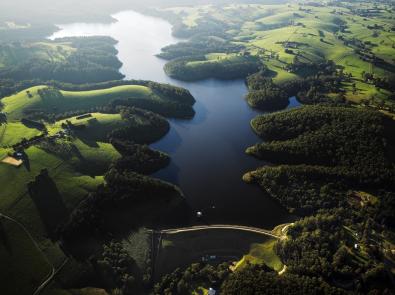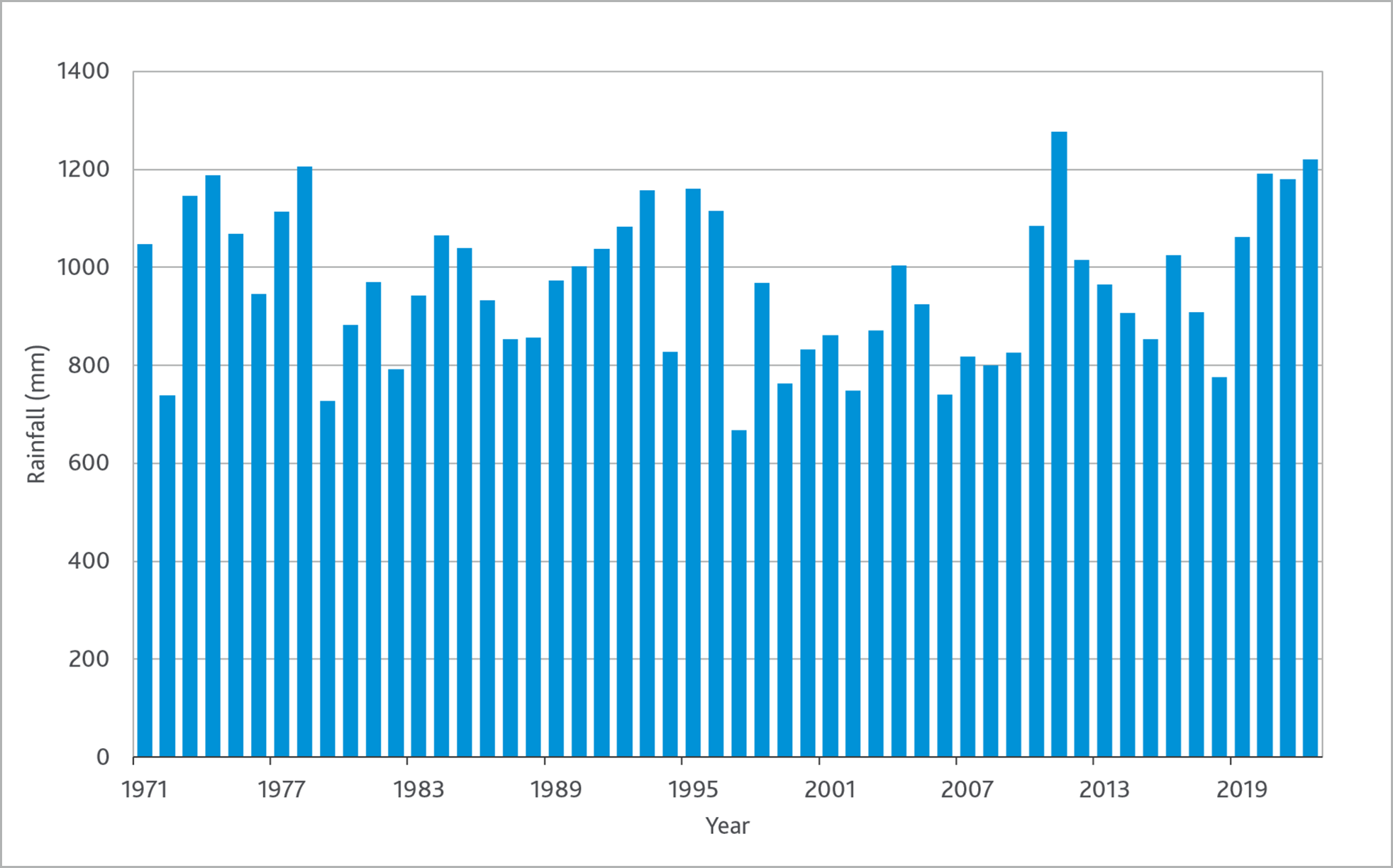We’re working with the Victorian Government to open Tarago Reservoir for on-water recreation for non-powered motorised boats.
Visit our online community hub Opening Tarago Reservoir for on-water recreation for more information.
Tarago Reservoir supplies water to Melbourne’s south-eastern suburbs, typically spanning Dromana to Garfield, as well as the Mornington Peninsula and towns in the Westernport region.
The reservoir was disconnected from Melbourne’s water supply network for many years due to water quality issues. It was reconnected in 2009, at the end of the Millennium Drought, following the completion of the Tarago Water Treatment Plant.
Key facts
The dam at Tarago Reservoir is constructed from rockfill with a clay core. It was completed in 1969 and enlarged in 1971.
- Catchment area: 11,400 hectares
- Surface area: 360 hectares
- Total capacity: 37,580 megalitres
- Dam height: 34 metres
- Dam length: 300 metres
Water catchment protection and access
Tarago Reservoir is an on-stream reservoir, filled by rivers or rainfall that runs off the nearby forested water catchments. There is:
- no entry into the inner catchment, with offenders subject to prosecution under the Water Act 1989 (Vic)
- entry permitted to the outer catchment, with restrictions determined by the Forest (Recreation) Regulations
- vehicle-based day visitors permitted.
Melbourne Water continually reviews our protected catchments to determine if more areas can be opened to the public. While this would allow more people to enjoy Victoria’s vast natural spaces, it must be balanced with protecting our precious drinking water for the safety of our community.
Rainfall over the years
View highlights from our historical rainfall data for Tarago Reservoir, including annual rainfall, monthly averages, and the wettest and driest years by month.
Live rainfall and water storage data
Get the latest information on each of our 10 major reservoirs, including daily water storage levels and hourly rainfall and river level data.
Annual rainfall at Tarago (1971-2022)
Monthly rainfall records (mm)
Last updated: January 2023
| Month | Wettest | Driest | Average |
|---|---|---|---|
| January | 123.8 (1991) | 3.4 (1990) |
63.0 |
| February | 237.8 (2011) | 3.1 (1991) | 55.2 |
| March | 137.9 (1973) | 12.8 (1972) | 63.2 |
| April | 162.2 (2020) | 21.2 (1993) | 76.2 |
| May | 151.6 (2000) | 15.4 (2009) | 73.1 |
| June | 163.6 (2021) | 14.6 (2006) | 78.4 |
| July | 147.8 (1977) | 28.8 (1976) | 78.8 |
| August | 183.0 (2019) | 24.8 (1998) | 94.1 |
| September | 233.6 (1992) | 36.0 (2001) | 102.5 |
| October | 213.0 (1989) | 21.4 (2015) | 105.4 |
| November | 190.6 (2022) | 29.4 (1982) | 93.8 |
| December | 207.2 (1985) | 7.7 (1972) | 81.3 |
| Annual total | 1277.4 (2011) | 667.6 (1997) |
964.9 |
You may also like...
Water treatment
Learn how we treat Melbourne's water to make sure it is safe to drink.
Our water supply system
Melbourne has some of the highest-quality drinking water in the world. Learn how it makes its long journey to your tap.


